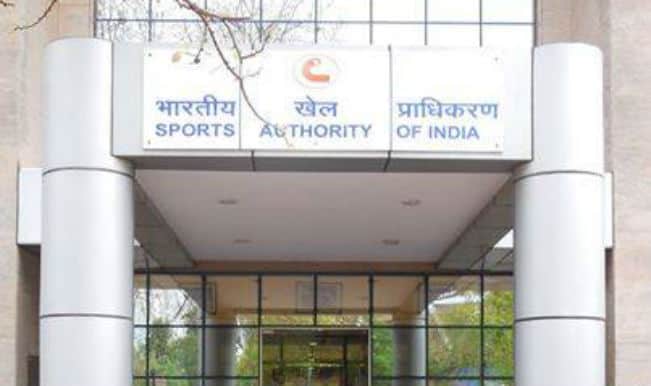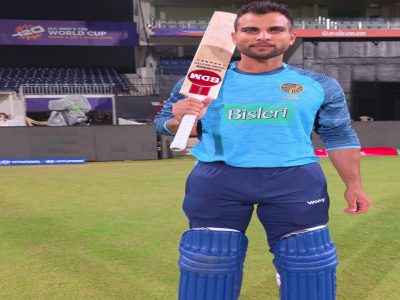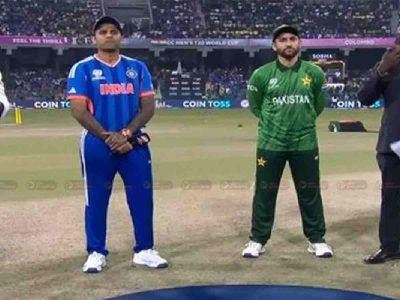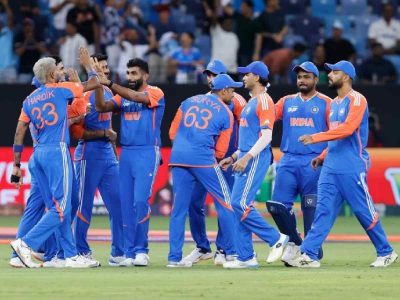Sexual harassment of female sportspersons is an issue that has plagued sport for quite some time. Indian Players share their horrific experiences with Patriot
Former South Korean tennis player Kim Eun-Hee recently held a press conference that took the world of sports by storm. During the meet, she claimed that she was sexually harassed by her coach repeatedly from the tender age of 10. “It took me years to realise that it was rape…He kept raping me for two years… he told me it was a secret to be kept between him and me”, she said.
This incident of sexual harassment, however, is not new and certainly not restricted to foreign countries. In India too there have been several cases of sexual harassments of athletes that have been reported down the years. A coach in Tamil Nadu appointed by the Sports Authority of India (SAI), was recently accused of sexual harassment by a team of 15 girls at a camp in Chennai. They alleged that the coach had asked for sexual favours, failing which they would not be given a chance to play.
In December 2017, a 15-year-old state level discus thrower from Karnataka accused her coach of sexual harassment. The girl said in a statement that her coach, Manjunath choked and pushed her during a tournament in Vishakhapatnam, and had touched her inappropriately during the return train journey.
Rituparna Sengupta, a state level table tennis player from West Bengal, avers that harassment is one of the main drawbacks for sportswomen in this country. “I myself have faced undue sexual advances from both coaches and male players. In a table tennis match, we have to wear shorts and play. So we have to get used to inappropriate male gazes as well.”
Mumbai-based footballer Rakhi (name changed), also has a pretty horrifying story to tell. “Once after an intense practice session I went to the dressing room and started changing. I was all alone in the room when I suddenly heard the door creaking open, and there was my coach, who smiled at me quite awkwardly and then tried to touch me. I somehow escaped, but the incident left such a deep mark on me that I took a break from the sport, and it took a pretty long time for me to come back.”
Shalini (name changed), always wanted to be a national level cricketer while growing up. She idolised Sourav Ganguly and became a left-handed batsman just to emulate him. Seeing her passion for the game, her father admitted her to the Deshapriya Park cricket coaching centre for women in Kolkata. She was very talented, naturally rose to the top rung and was even selected for the Bengal women’s team in no time. However, an incident changed her life completely. “When we were travelling to Hyderabad to for a match, I felt that our coach at the state team looked at me continuously in a very strange manner. I felt very uncomfortable”, she says.
“Then after a few days, when I returned one day from my practice session to my room, I found the door open”, she continues. “I did not pay heed to the fact as I thought I must have left it open. But suddenly I felt someone grabbing me from behind, as he locked the door from inside. It was my coach”, she recounts.
“He shoved me and persistently tried to force himself upon me. But somehow, I managed to grab a bat from nearby, and hit him, unlock the door and run away”, she adds. Shalini could never recover from the shock of this incident. Her performances deteriorated and she eventually stopped playing cricket, a game which she loved more than her life.
However, unlike Rituparna, Rutuja or Shalini most women do not speak up against the harassment they faced. “Most of these harassed girls are young, and so they are afraid to speak up against an authority figure like their coach,” says former basketball player and coach Aparupa Das. “Most of these girls are from poor economic background and mainly come into the academies on the basis of a scholarship. So, they feel that speaking up against these atrocities will probably ruin their career.”
“Women involved in team games have more of a tendency to stay quiet, because they fear that if they speak up they will be dropped from playing for the team, and would sit out the match on the bench”, says former volleyball player Neeti Rawat.
The Sports Authority of India (SAI), has come up with ways to tackle this demon of sexual harassment that plagues Indian sport. A core committee looked into the matter of the Tamil Nadu coach and immediately sacked him after thorough investigation. They are also looking into complaints from other states like Gujarat and Maharashtra, according to reports. The SAI recently organised a camp consisting of top officials, heads of different regional training centres and a lot of young trainee athletes to warn them about sexual harassment, what is acceptable behavior and what is not. The coaches were also warned that they will be under strict vigilance and any inappropriate behaviour will result in serious consequences under the POCSO Act.
“Like SAI, if all other sports bodies start concentrating on eradicating this evil of sexual harassment, then such cases will never happen again, and no more girls will have to suffer anguish and leave their dreams of becoming a sportswoman ever again”, concludes Neeti Rawat.





